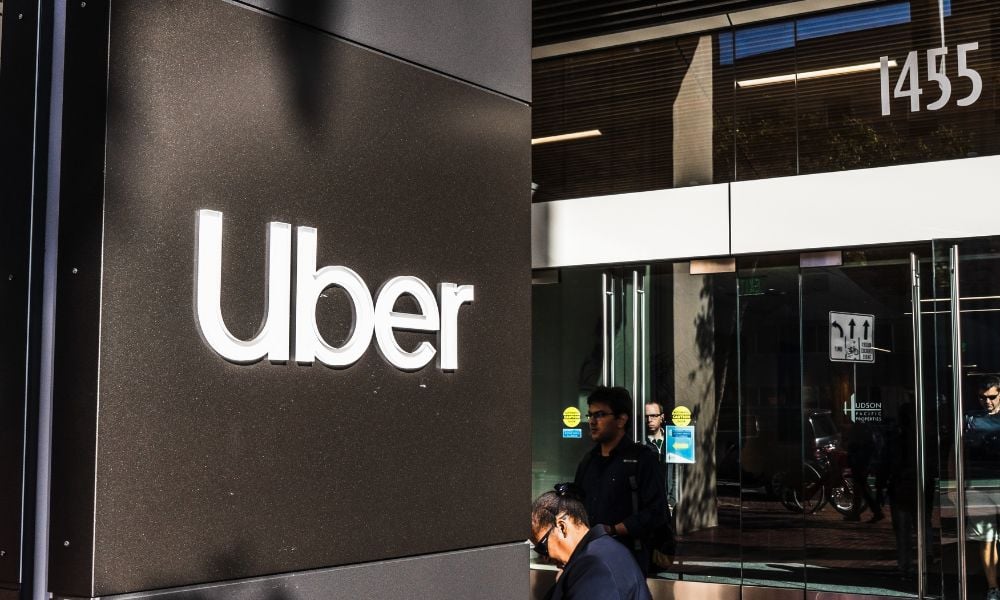
Lawsuit alleges employer misclassified employment status of drivers, delivery people in province

Ride-hailing and courier services company Uber will soon be in court facing charges as an Alberta court has released a court-approved notice certifying a class action against the employer.
The Alberta Court of Kings Bench has certified the case alleging that the employer misclassified the employment status of Alberta drivers and delivery people, according to McKenzie Lake Lawyers LLP.
“The class-action lawsuit alleges that the level of control Uber has over Alberta drivers and delivery people creates a relationship of employment and that Uber has misclassified the employment status of Alberta drivers and delivery people,” according to the law firm.
The “misclassification” has deprived Alberta drivers and delivery people of the “protections and benefits under employment standards legislation,” including minimum wage, overtime, vacation and holiday pay, they said.
These allegations have not yet been proven in court, the law firm noted.
The Canadian Freelance Union is looking to help people who have been victims of labour violations.
Uber classifies its drivers and couriers as independent contractors because they can choose when, where and how often they work, according to a CBC report. However, in exchange for that freedom, drivers and couriers have no job security or access to many benefits that are typical of employment.
"We believe we can make app-based work better for drivers and delivery people,” said Uber Canada spokesperson Keerthana Rang in a statement, according to the CBC report.
“That's why for the last two years, Uber and UFCW Canada, Canada's largest private sector union, have been providing over 140,000 drivers and delivery people on the Uber platform with strong representation and advocating for government reforms to provide drivers and delivery people new benefits while preserving the flexibility of their work.”
In June, British Columbia’s new policy for gig workers’ pay and tipping stirred some controversy as ride-hailing company Uber expressed opposition to the new regulation, saying it is “set to drive up costs for residents and drive down demand for local businesses.”
BC’s new policy requires Uber and other driving and delivery apps like DoorDash and SkipTheDishes to pay their drivers $20.88 per working hour, beginning September 3. The new pay is 20% higher than BC’s regular minimum wage.